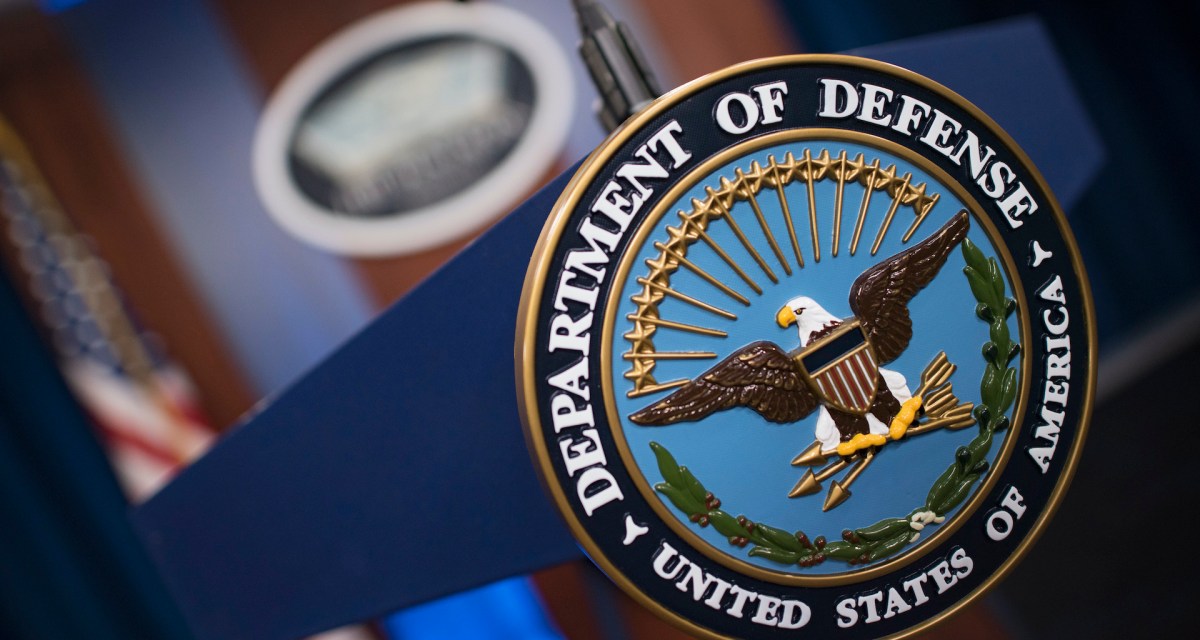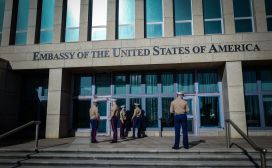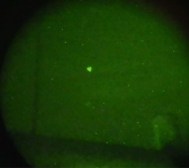Pentagon reviewing payment applications from Havana Syndrome victims

The Defense Department has started reviewing applications from personnel seeking financial compensation for brain health issues associated with the phenomenon known as Havana Syndrome, according to the Pentagon’s chief spokesperson.
The term Havana Syndrome was coined after people working at the U.S. Embassy in Cuba’s capital city in 2016 reported a sudden onset of symptoms that had no obvious cause, including vertigo, imbalance, blurry vision, tinnitus, headache, hearing loss, nausea and cognitive dysfunction.
“Although there are reports that predate these incidents, the media originally called these phenomena Havana Syndrome, as they were the first to garner public attention. Such events have affected U.S. government employees, military servicemembers, and their families in countries around the world, and are now referred to as anomalous health incidents (AHI) by the U.S. government,” the Government Accountability Office explained in a July 2024 report, which also highlighted challenges that sufferers faced in accessing the Military Health System.
Congress several years ago passed legislation that authorized federal agencies to compensate affected employees, former employees and dependents for qualifying brain injuries.
“The Department of Defense has begun reviewing applications by DoD personnel for payments pursuant to the Helping American Victims Afflicted by Neurological Attacks Act of 2021 (HAVANA Act),” chief Pentagon spokesman Sean Parnell said in a statement Friday.
“Under the HAVANA Act, DoD employees and their covered dependents who suffered qualifying brain injuries on or after January 1, 2016, in connection with certain Anomalous Health Incidents (AHI), are eligible for a one-time payment. The Department is committed to helping DoD personnel affected by AHIs,” he added.
A House Intelligence subcommittee report issued last December noted that Havana Syndrome incidents have also been reported in Austria, China, Colombia, Georgia, Germany, India, Poland, Russia and Vietnam, as well as the United States.
Estimates vary as to the number of individuals affected by the problem, GAO noted in last year’s report. As of January 2024, 334 people had qualified for care in the Military Health System, according to the government watchdog.
Some observers believe that incidents of Havana Syndrome may have been intentionally caused by adversaries using pulsed radio-frequency energy or focused ultrasound devices, but others are skeptical.
“Various government agencies and medical researchers have conducted studies on aspects of AHIs, but none have isolated a cause,” the GAO report stated.
A study by a panel of U.S. intelligence community experts — whose findings were declassified in 2022 — found that “known medical and environmental conditions, including psychosocial factors, could not explain some AHI cases with abrupt-onset, location dependent, audio-vestibular phenomena. It concluded that various forms of pulsed radiofrequency energy, as well as focused ultrasound in close access scenarios, were plausible explanations for these cases, though information gaps existed,” according to the GAO report, which noted that the experts “did not address the question of attribution to an actor, including the question of whether a foreign actor may be involved.”
Another IC assessment, released in March 2023, concluded it was “very unlikely” that a foreign adversary was responsible for the reported incidents, and that deliberate causal mechanisms were “very unlikely” to have produced the sensory phenomena and symptoms associated with them — although confidence levels in those conclusions varied among the IC agencies, per the GAO report.
Leadership of a GOP-led House Intelligence subcommittee criticized the 2023 IC assessment, saying it “lacked analytic integrity.”
“It appears increasingly likely and the Chairman is convinced that a foreign adversary is behind some AHIs,” officials wrote in a subcommittee report released in December 2024.
A former U.S. Army officer who led an official investigation told journalists from the show 60 Minutes that he believed Russia was behind attacks that caused Havana Syndrome symptoms, according to CBS News.
The Defense Civilian Personnel Advisory Service (DCPAS) is responsible for administering the HAVANA Act-related payment program for the Pentagon.
“DCPAS will collect and review applications that have been submitted, using the DD Form 3220, ‘Eligibility Questionnaire for HAVANA Act Payments,’ claim form, to the HAVANA Act email address (dodhra.mc-alex.dcpas.mbx.dod-havana-act@mail.mil). Individuals applying on behalf of a covered employee or covered dependent must provide documentation demonstrating the individual is authorized to act on behalf of the applicant,” Jules Hurst III, acting undersecretary of defense for personnel and readiness, wrote in a June 20 memo, which provides details about the adjudication, payment and appeals processes.
“DCPAS may consult with offices within the Office of the Secretary of Defense to determine whether the incident causing the injury was in connection with war, insurgency, hostile act, or terrorist activity. For applications involving incidents that have been designated by DoD as ‘other incidents’ … DCPAS will request that the applicant or Director, Defense Health Agency, provide a designation letter … to validate that an incident at a particular location has been reported and the covered employee or covered dependent is authorized to receive medical care from DoD in relation to the incident,” Hurst wrote in the memo.






